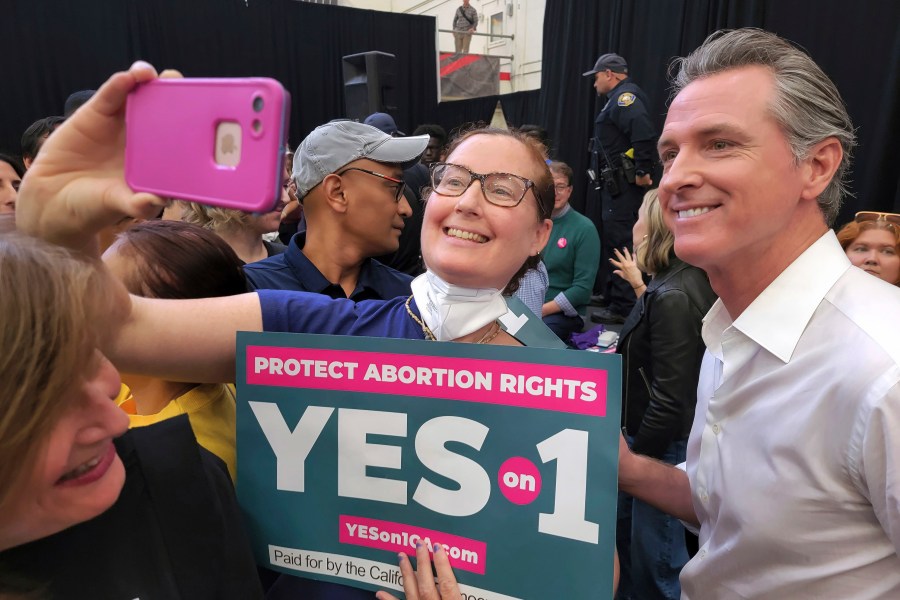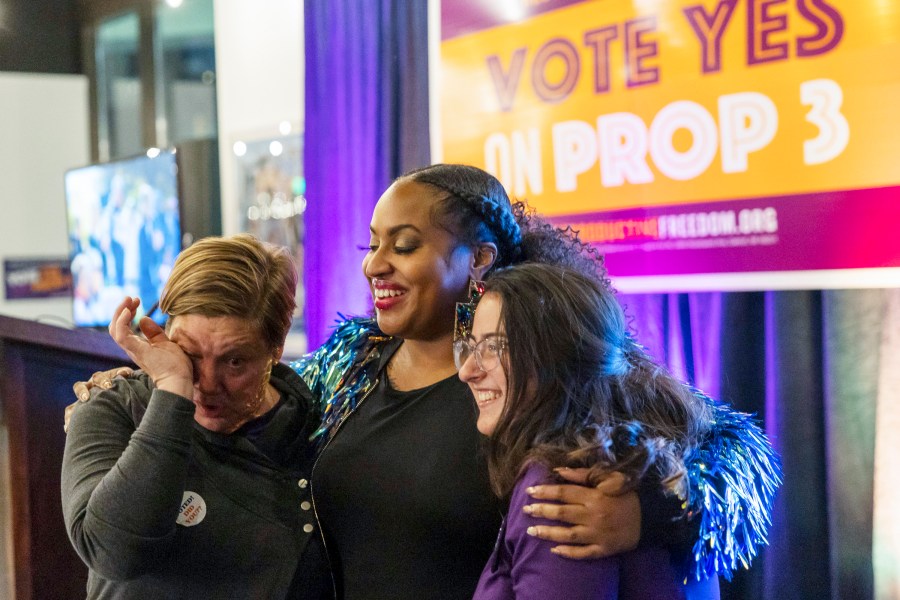How abortion did in 5 states where it was on the ballot
(NewsNation) — Voters in five states were able to weigh in on protecting or further restricting access to abortion during this year’s midterm elections.
California, Vermont, Michigan, Montana and Kentucky all had ballots that included proposed amendments to the state constitution regarding abortion and contraception.
These ballot measures came six months after the Supreme Court removed the federal constitutional right to abortion by overturning Roe v. Wade. The court’s decision on Dobbs v. Jackson Women’s Health Organization led to near-total bans in a dozen states.
“One key thing Republicans need to look at is really what appears to be an underestimation of how long and how much the Dobbs decision motivated Democrats,” Republican strategist Erin Perrine said on NewsNation’s “Morning in America.”
The following is a roundup of results that have been officially called by Decision Desk HQ:
California
According to Decision Desk, 64.98% of people who voted in California said yes to a proposal that amends the state’s constitution to add the right to an abortion.

Previously, the state had passed several measures aimed at easing access to the procedure and setting aside millions of dollars to help people pay for some out-of-state abortion travel.
“Only months after the Supreme Court took away our constitutional right to abortion, California voters have spoken,” Planned Parenthood Action said on Twitter. “Abortion will be PROTECTED in the state’s constitution, ensuring access for millions of Californians and those who have come to rely on access there.”
Those who opposed the legislation said it uses “sweeping, broad language,” and that it is not needed.
“Prop 1 is unnecessary to protect abortion rights in California. Whether Prop 1 passes or fails, nothing about abortion rights will change in California,” The Right to Life League said on its website. “At best, Prop 1 is unnecessary legislative virtue signaling designed to salute abortion. At worst, Prop 1’s broad scope could endanger public health and unleash unanticipated exploitation of women and children.”
Kentucky Constitutional Amendment 2
Kentucky’s amendment, establishing that the state’s constitution does not include abortion protections, was rejected at the ballot box. Over half, or 51.90% of voters, said “No” to the legislation, which would have undermined abortion rights advocates’ fight against Kentucky’s six-week and near-total abortion bans in court.
Now that it has failed, though, the League of Women Voters said the Kentucky Supreme Court can now choose to strike down the state’s current ban on abortion at conception.
Kentucky’s one of the states that had “trigger” laws, which are abortion bans set to take effect once the constitutional U.S. Supreme Court ended constitutional protections for abortion.
The ACLU of Kentucky filed a lawsuit challenging Kentucky’s abortion bans on behalf of EMW Women’s Surgical Center and Planned Parenthood, saying it caused individuals to “remain pregnant against their will.”
Kentucky’s trigger law was immediately enforced by the state’s Attorney General Daniel Cameron, but the ACLU of Kentucky got an injunction from a circuit court blocking the bans.
However, a Kentucky appeals court judge allowed Cameron to enforce them in August. Now, the ACLU and its co-counsel are set to argue before Kentucky’s Supreme Court on Tuesday.
Samuel Crankshaw, spokesperson for the ACLU of Kentucky, said the organization is “optimistic” that the results from Tuesday’s election will help its arguments before the state Supreme Court next week.
“The people of Kentucky and people all over the United States, regardless of their political party, and regardless of the people they vote for, still want to have the right to make the best decision for themselves,” Crankshaw said.
Cameron, who is named in the lawsuit, has previously said there is no “right” to abortion contained in the U.S. Constitution.
“I have always stood strong in defense of life, and I will continue to advocate for our laws, which protect pregnant women and unborn babies,” he said, according to the Associated Press.
Although their particular case is isolated to Kentucky, Crankshaw says reproductive rights are a national issue.
“When Kentucky, Indiana, Ohio, West Virginia, Tennessee, all ban abortion, that’s an entire region of our country where people don’t have the same rights as people in another state,” he told NewsNation. “Hopefully, this will also be a lesson to Kentucky’s elected officials and elected officials elsewhere, that they need to stop passing such extreme abortion bans.”
Michigan Proposal 3
Michigan voters approved an amendment to the state constitution giving “every individual a right to reproductive freedom.” About 56.68% of those who cast their ballot voted in favor of the proposal, while 43.32% were against it.
The Associated Press reported that supporters of protecting abortion rights in the state collected more signatures than any other ballot initiative in Michigan’s history. The measure puts a definitive end to a 1931 ban on abortion that was blocked in court but could have potentially been revived.

“With the loss of Roe v. Wade in June and the ongoing attacks on abortion access throughout Michigan, the Midwest, and the nation, this election was essential to protecting the fundamental rights of Michiganders,” Nicole Wells Stallworth, Executive Director of Planned Parenthood Advocates of Michigan, said in a statement. “We know that Michigan voters support abortion access and are grateful they turned out to offer overwhelming support for Proposal 3.”
Meanwhile, opponents argue that the measure will have far-reaching effects on other laws in the state. Calling it a “poorly-worded amendment,” Citizens to Support Support Michigan Women and Children said it would “spill over and affect many other issues.”
“We expect the authors of this proposal to respond to the inevitable flood of litigation that will come with this amendment by insisting that laws like parental consent be upheld, as they promised the people of Michigan,” Christen Pollo, spokesperson for Citizens Supporting Michigan Women & Children, said in a statement to NewsNation.
Vermont Proposal 5
With 76.74% of voters supporting it, Vermont’s Proposal 5 asserted “an individual’s right to personal reproductive autonomy.”
While a state law had previously allowed for access to abortion, contraception and sterilization, the proposal creates tougher thresholds for the state to deny or infringe in these areas.
“Here in Vermont, voters took responsibility to protect care wherever possible. With Roe v. Wade being overturned, state-level protections are vital to safeguarding access to reproductive health care, and Vermont has set an example of what is possible. We are grateful to Vermont voters for their overwhelming support of these fundamental human rights,” Eileen Sullivan and Sam Donnelly of The Reproductive Liberty Ballot Committee said.
Montana, as of Tuesday afternoon, still had not been called by Decision Desk HQ.
The Associated Press contributed to this report.
This story is developing. Refresh for updates.









